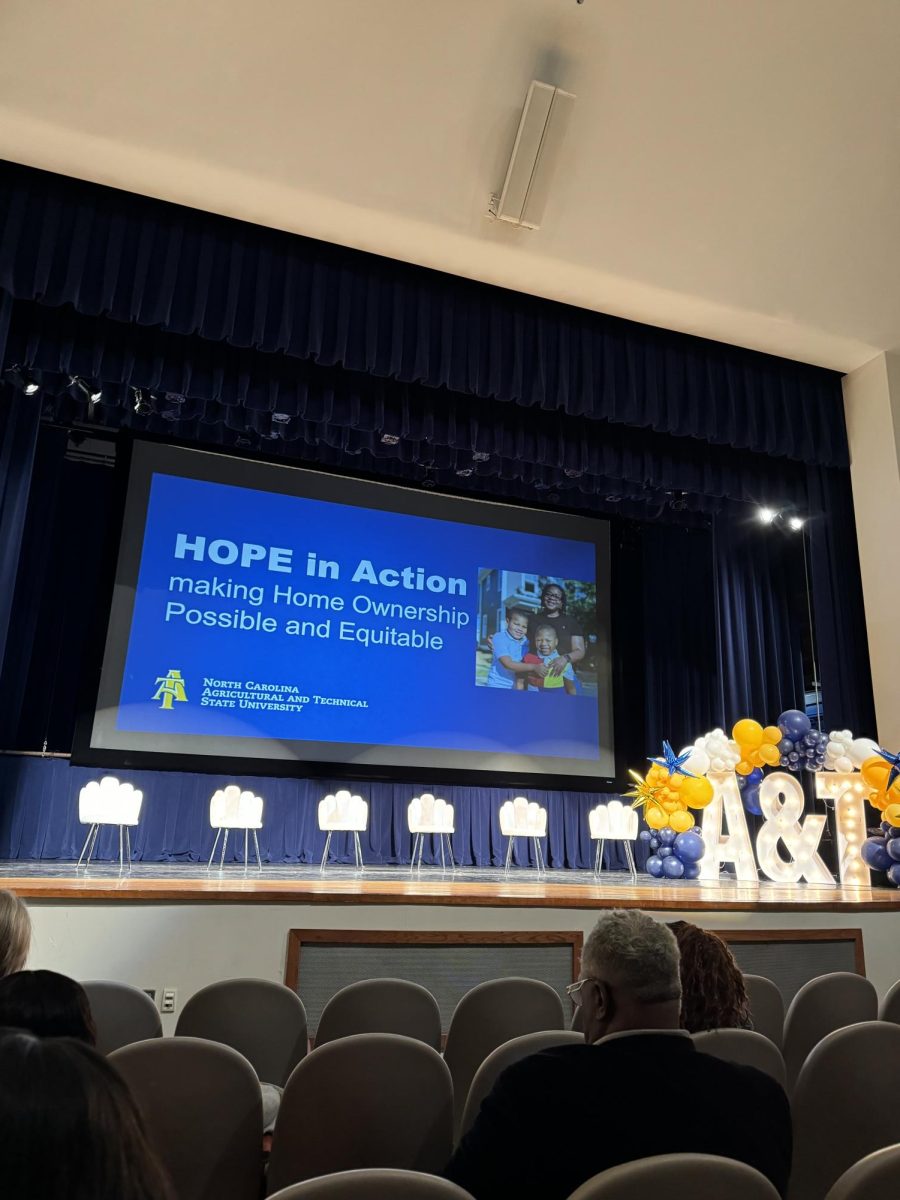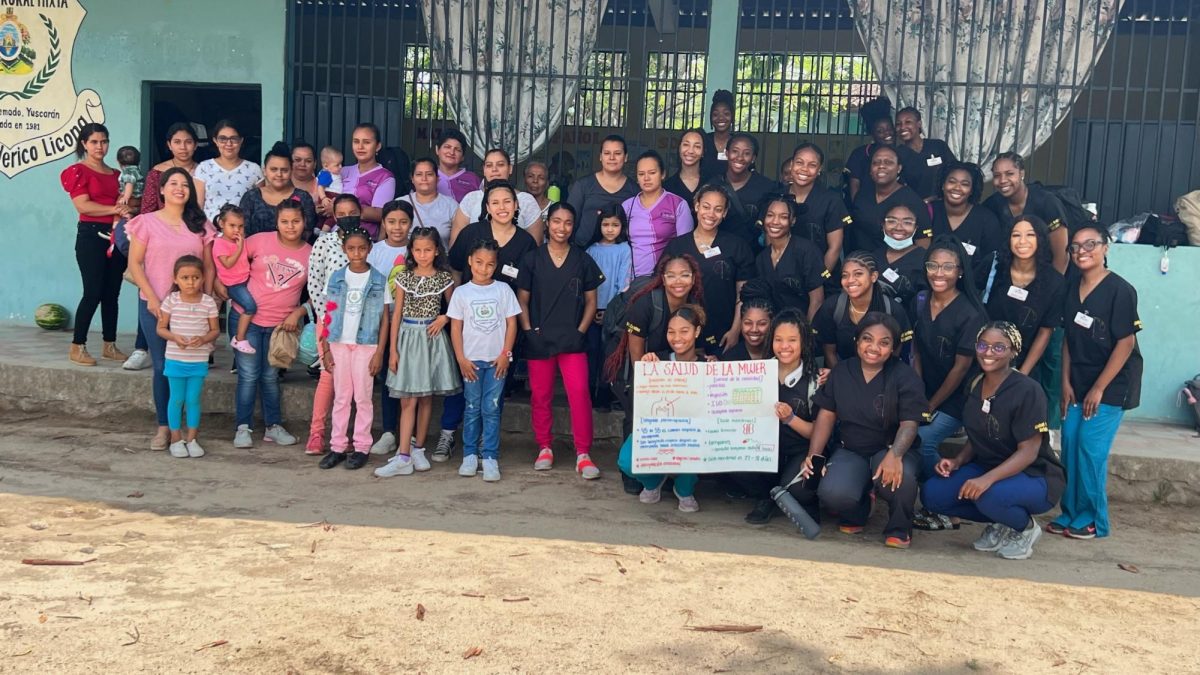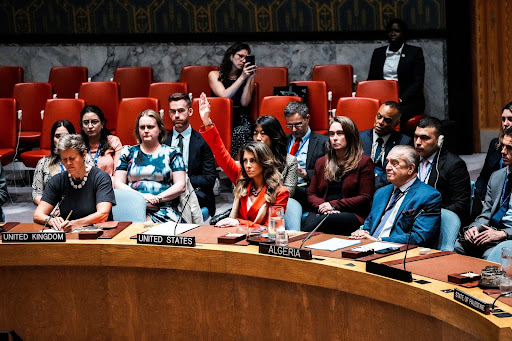N.C. A&T’s Office of Leadership and Civic Engagement hosted an event aiming to increase awareness of the barriers and benefits of homeownership, housing affordability and access and inform community members that homeownership is possible.
The university hosted the “HOPE In Action” homeownership event on Tuesday, Jan. 30, with Bakari Sellers, a former South Carolina State Representative, serving as the event’s keynote speaker.
Students and community members participated in workshops and got a chance to hear from a panel of community leaders. Speakers included Sofia Crisp, Dr. Olugbemiga Jeged, Asst. Chief Stephanie Mardis, Melissa Smith, Dr. Sung Jin Lee, Milan Griffin, and Gwen Garnett. All spoke on the importance of pathways towards homeownership.
“Homeownership is a proven pathway to build wealth,” said Milan Griffin, Chief Operations Officer, HomeFree-USA and HOPE in action workshop presenter.
Griffin highlighted a history of systematic racism and economic disenfranchisement that causes black households to be left behind financially compared to other communities.
“It’s not just the financial piece of it; it’s also the social elevation that comes with homeownership, Griffin continued.
Griffin discussed studies showing that students whose parents are homeowners perform better due to continued stability. This leads to better secondary education and career opportunities. Griffin suggests homeownership provides an opportunity for upward mobility that renters may have yet to have.
The workshop sessions during the day and the keynote address later in the evening included attendees looking to learn more about the home-buying process.
“The reason I came to this event was to learn more about what the home buying process entails,” said Joshua Taylor, Senior Finance and Business Entrepreneurship student, Co-founder, and President of N.C. A&T’s Real Estate Foundation.
“Even though I’m a college student, I’m a little younger in my life and career, I still want to understand the process so that when I am ready to make that step, I understand fully who to go to so that I can gain that valuable information,” said Taylor.
Students were encouraged to start planning for homeownership while making post-college plans now, while community members were reminded they had yet to start.
“It’s never too early or too late. It all depends on your mindset and what you’re willing to do to have something of value.” Griffin pointed out.
With the vast array of ages attending the event, audience questions ranged from preparing for college to recovering from past bankruptcy to becoming a future homeowner.
“My grandmother used to say you can’t fall off the floor,” Sellers shared.
Sellers did not understand his grandmother’s saying when he was young, but now, he applies it, seeing how many feel defeated, struggling to obtain the basics in life.
Speaking of those who do not feel homeownership is obtainable, he empathized with working-class community members who work 40 hours a week but cannot afford to make ends meet, much less purchase a home.
During his keynote address, Sellers reflected on the legacies of Rosa Parks, George Elmore, Sarah Mae Flemming, Harry and Eliza Briggs, and other civil rights leaders.
“We forget that words like hope, love, truth, justice, peace, equity, and equality must be verbs,” Sellers told participants.
He reminded attendees that homeownership, civil rights, and quality living standards are all interconnected.
Homeowners in North Carolina recently learned their homeowner’s insurance could increase by 30-50%, with a statewide average increase of 42%. An increase of this size would drastically impact home affordability across the state. The proposed increases bring additional attention to extreme weather events and climate change as it is becoming more expensive to protect personal property, and some insurance companies have begun to take advantage of their customers.
“When you go into areas like Florida, you have places well in-land, away from the water, but they’re (insurance companies) still charging them hefty flood insurance.”
As North Carolinians weigh in on proposed insurance increases, events like the HOPE In Action ensure community members are informed and have a voice in the conversation.







